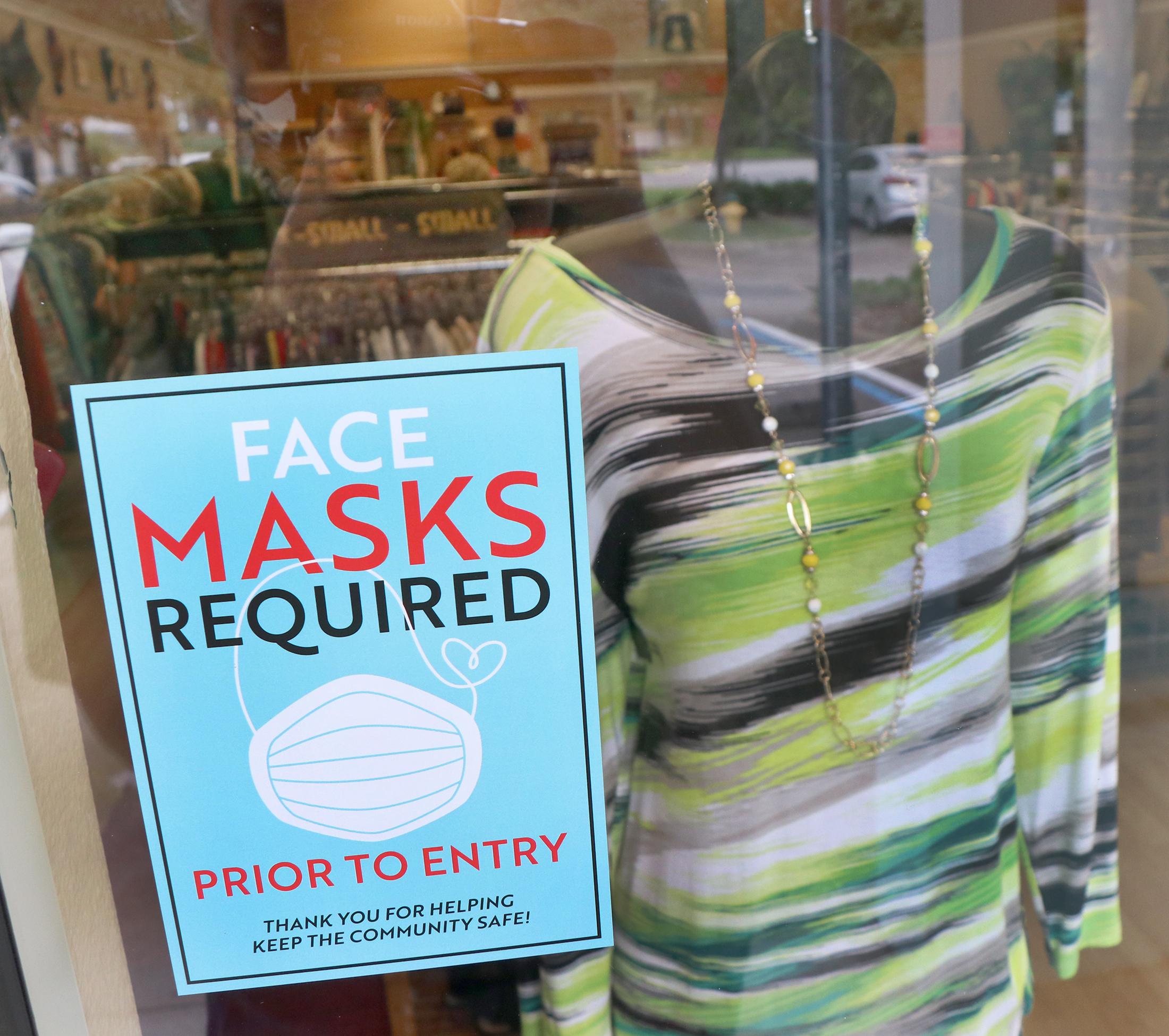
Several videos surfaced on social media showing customers refusing to wear a face covering in stores, some leading to violent confrontations, as states began to reopen and ease social distancing requirements.
While the Centers for Disease Control and Prevention recommends face coverings to prevent the spread of the coronavirus, some believe it is a violation against their constitutional rights.
"When people sense that another person is trying to control their decision, some people are going to act out against that control, whereas others are going to go along with it," Dr. Vaile Wright, senior director of Health Care Innovation at the American Psychological Association, told USA TODAY.
Some people are also just feeling tired and scared amid the pandemic, which can contribute to carelessness and angry resistance towards face masks, psychologists said.
Many states have mandated face masks in public as the country sees a resurgence of COVID-19 cases. President Donald Trump, who has been criticized for not wearing a face mask in public, was seen wearing one for the first time in public while visiting Walter Reed Hospital on Saturday.
In California, California Gov. Gavin Newsom announced statewide closures Monday again. Some businesses, including Best Buy and Starbucks, are requiring customers to wear a face mask starting Wednesday.
Feeling controlled could lead to people engaging in illegal activities, or in this case, non-compliance with a medical recommendation, Wright said. It's also important to acknowledge the lack of trust in public officials and lack of understanding for COVID-19 recommendations amid the pandemic, Wright said.
Widespread misinformation about masks is also likely to blame for some of the public meltdowns, said Dr. Ashish Jha, the director of the Harvard Global Health Institute. Few people would react in such a way if they realized how effective masks were in saving lives, he said.
For months, the CDC did not recommend the public to wear face masks to help reserve them for healthcare workers. The CDC then reversed its recommendation on April 3 as research suggested face coverings could reduce the spread of droplets and the possibility of pre-symptomatic and asymptomatic transmission.
Wright said the change in recommendation and "inconsistent messaging" on face masks can be hard for some people to understand and can lead to stress and defiance against medical guidance.
One way to change that is by providing consistent messaging from government and health officials who are also seen wearing face masks in public. Wright said it's important to make sure that "our images match up with our messaging."
The public also needs to remove the idea that something is being taken away from them when asked to comply with medical recommendations, Wright said. Instead, she suggests people to view it as a "selfless act to help others."
"Our role as citizens is to be responsible. Our freedom comes with responsibility, and this is one of those responsibilities to protect the public," Wright said.
Contributing: Joel Shannon, USA TODAY
"some" - Google News
July 15, 2020 at 08:37AM
https://ift.tt/38VB2ep
Confrontations over face masks and the psychology behind why some people resist them - USA TODAY
"some" - Google News
https://ift.tt/37fuoxP
Shoes Man Tutorial
Pos News Update
Meme Update
Korean Entertainment News
Japan News Update
Bagikan Berita Ini















0 Response to "Confrontations over face masks and the psychology behind why some people resist them - USA TODAY"
Post a Comment